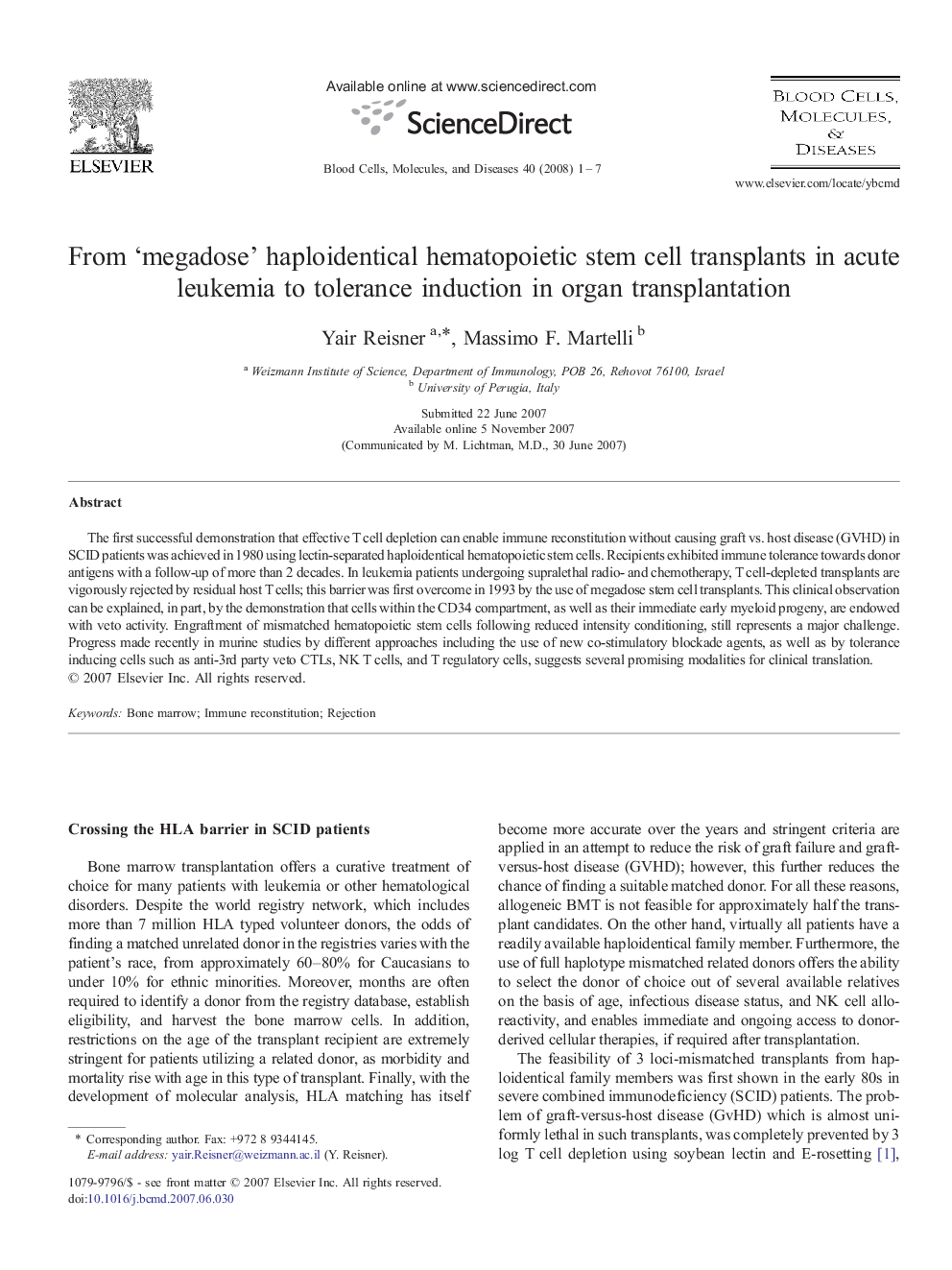| کد مقاله | کد نشریه | سال انتشار | مقاله انگلیسی | نسخه تمام متن |
|---|---|---|---|---|
| 2828077 | 1162475 | 2008 | 7 صفحه PDF | دانلود رایگان |

The first successful demonstration that effective T cell depletion can enable immune reconstitution without causing graft vs. host disease (GVHD) in SCID patients was achieved in 1980 using lectin-separated haploidentical hematopoietic stem cells. Recipients exhibited immune tolerance towards donor antigens with a follow-up of more than 2 decades. In leukemia patients undergoing supralethal radio- and chemotherapy, T cell-depleted transplants are vigorously rejected by residual host T cells; this barrier was first overcome in 1993 by the use of megadose stem cell transplants. This clinical observation can be explained, in part, by the demonstration that cells within the CD34 compartment, as well as their immediate early myeloid progeny, are endowed with veto activity. Engraftment of mismatched hematopoietic stem cells following reduced intensity conditioning, still represents a major challenge. Progress made recently in murine studies by different approaches including the use of new co-stimulatory blockade agents, as well as by tolerance inducing cells such as anti-3rd party veto CTLs, NK T cells, and T regulatory cells, suggests several promising modalities for clinical translation.
Journal: Blood Cells, Molecules, and Diseases - Volume 40, Issue 1, January–February 2008, Pages 1–7